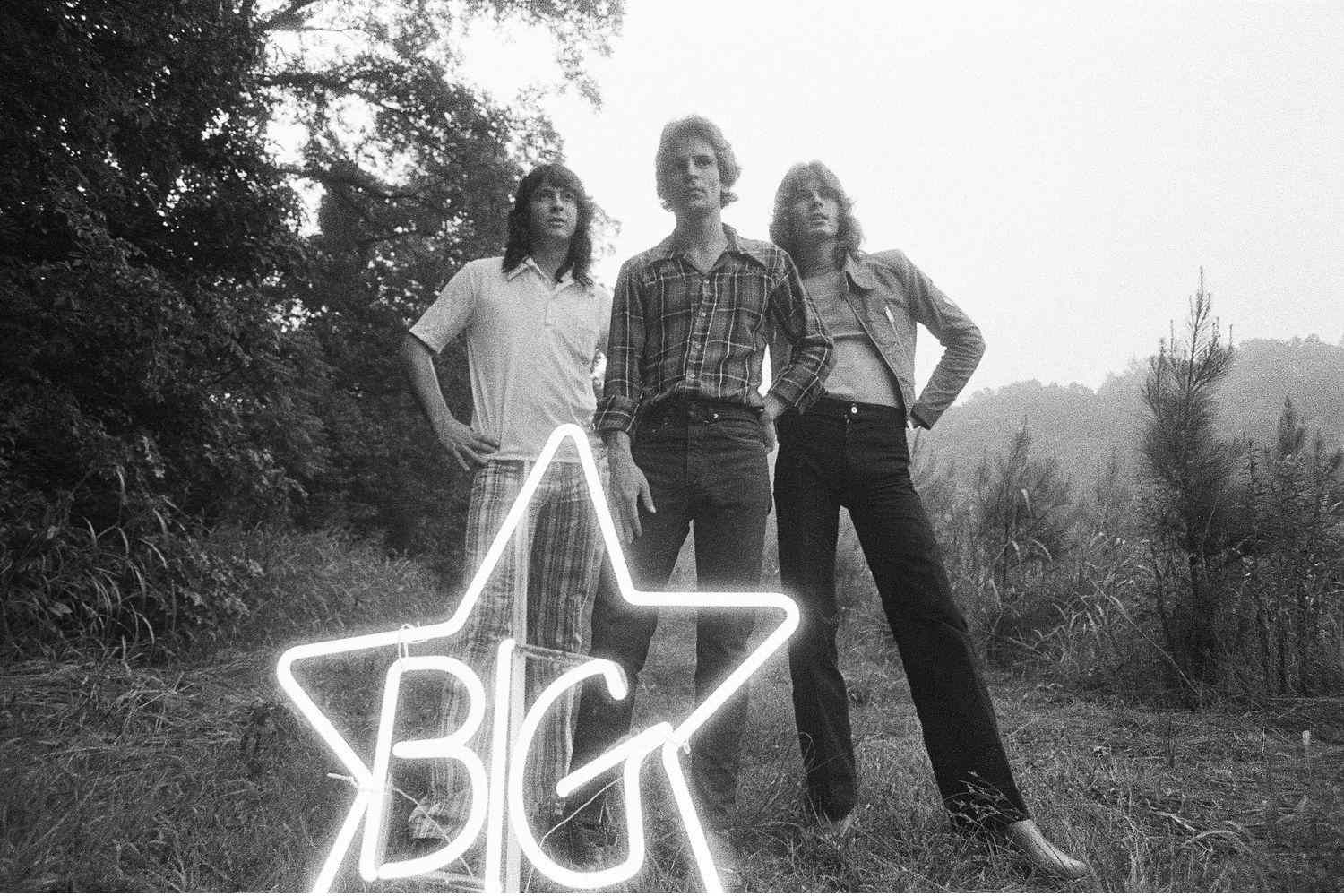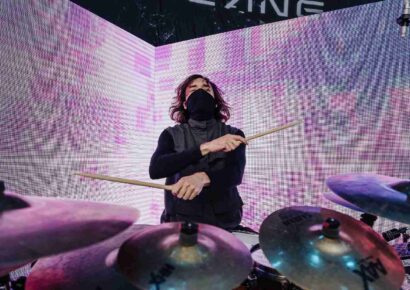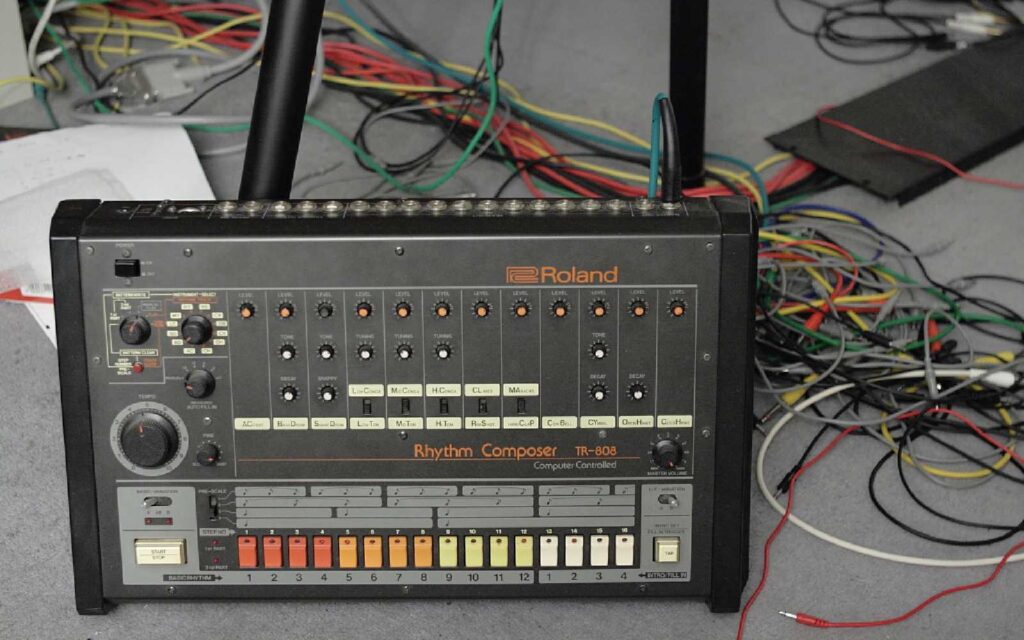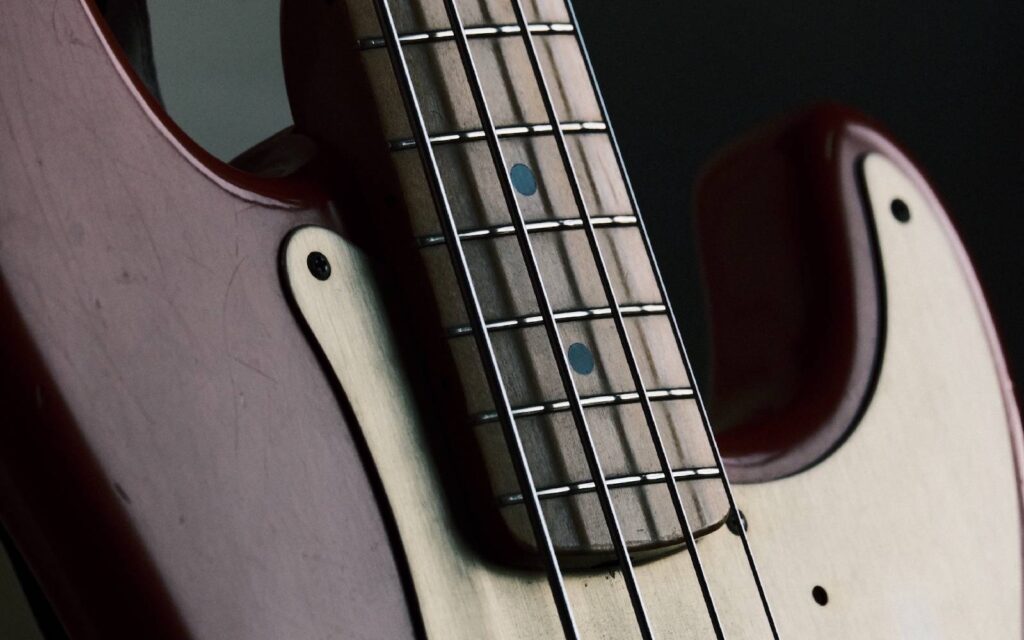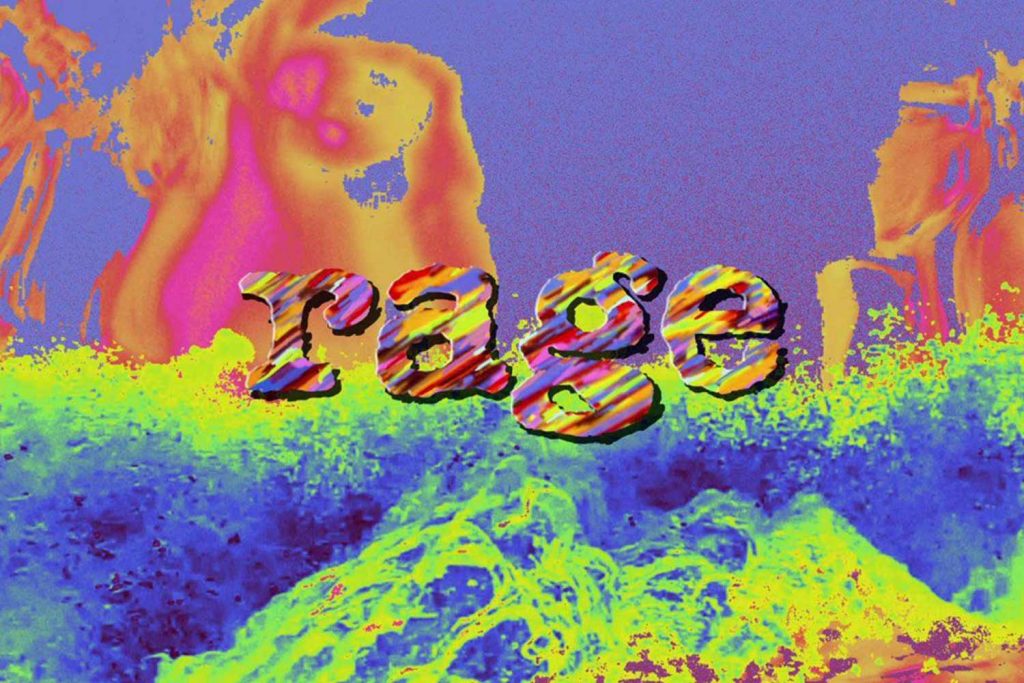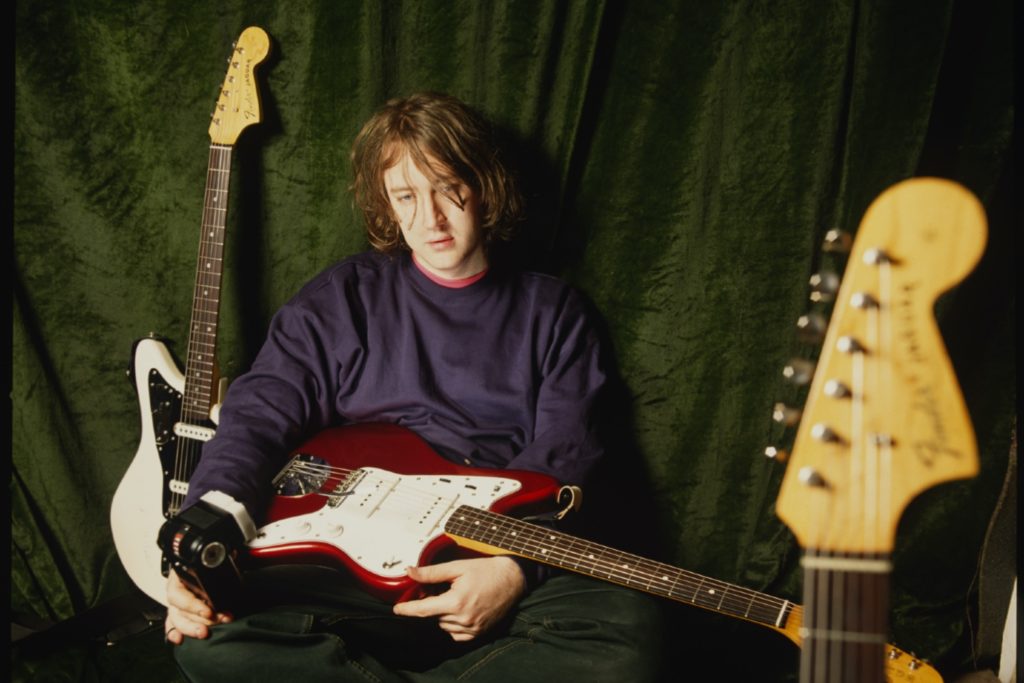Jody Stephens was in the rock band Big Star, who’ve influenced countless musicians since recording their first album at Ardent Studios in Memphis in 1971.
Now touring with his new band Those Pretty Wrongs, Jody Stephens, best known for his role as a founding member of Big Star, and bandmate Luther Russell, will be here in August to promote their new album Holiday Camp, which is available now.
Read up on all the latest features and columns here.
Ahead of the release, we spoke to Jody about his storied career, his time at Ardent Studios, and how Those Pretty Wrongs decided to record Holiday Camp, having been making records since well before digital recording and DAWs took over. I begin by asking how Holiday Camp came about, and how the two usually start the recording process.
“It’s just the two of us. Luther on a 12-string and singing harmonies, and I sing lead.”
“So it’s — we sort of record that way to keep the primary focus on the song and not so much production. Although, I gotta admit there’s some really nice production [on the new album].” Jody laughs.
“Y’know, our vocals are always out front and Luther’s guitars up front, and so that’s the way that we present it live, that’s the only way that’s feasible. At this point, we certainly couldn’t afford to come to Australia with a band.”
Jody has answered one of my first questions – how will they perform Holiday Camp live? The record is very band focused, and live sounding, with neat little arrangements spread across multiple instruments.
“Yes, there’s no band [live]. We’ll play Holiday Camp, start to finish, just the two of us, and we’ll play, probably a few more Pretty Wrongs songs, and then I think we’re having a bass player and a drummer join us for some Big Star songs.”
Jody’s inflection goes up a little bit here, as if he’s unsure of the exact arrangement.
“The Big Star songs we do that I’ll sing, I won’t play drums, but the ones I don’t sing, Luther’s gonna sing. So I’ll play drums on those. We’ll probably end on a Pretty Wrongs song.”
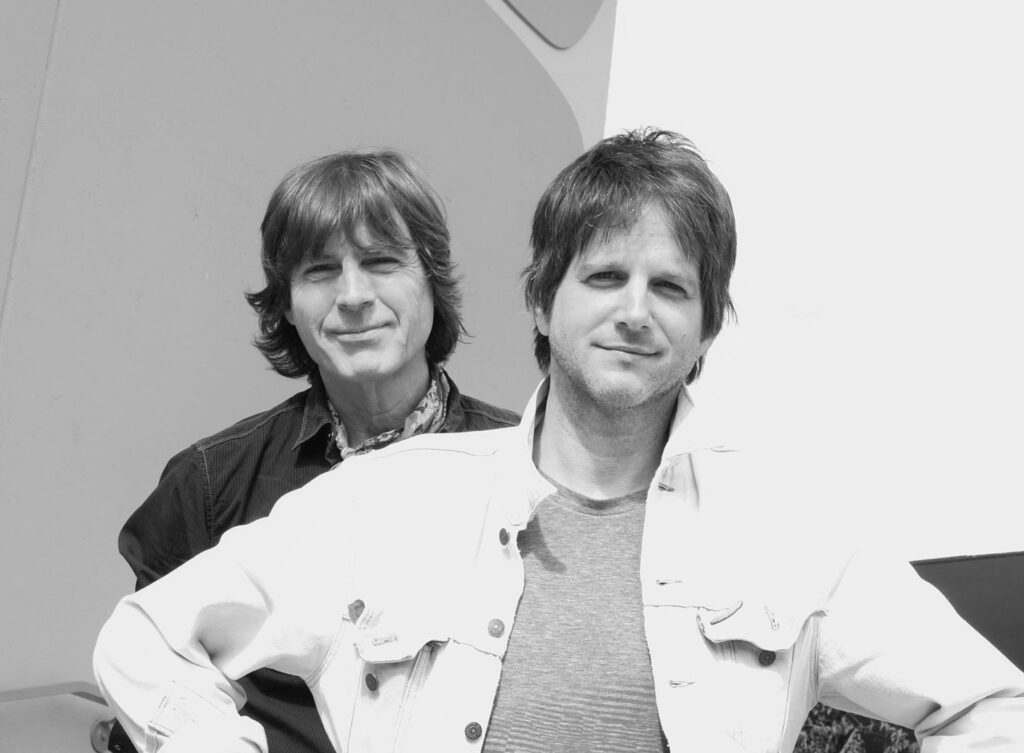
I’m intrigued about the extra drummer and bass player. Are they Australian musicians who’ll be joining Those Pretty Wrongs?
“Yeah, I think they’re a couple. It’s been a minute since I talked to the team about the plan.”
Jody laughs at this. He seems very relaxed about it all, confident in his ability to perform no matter the scenario. I shift gears a little, asking about the band that helped create the album Holiday Camp. It was recorded at Ardent Studios in Memphis, Tennessee, a studio that Jody has heavy ties to professionally and personally.
I begin by asking if the band was live in the room or if they cut the separate instruments isolated from one another.
“Kinda works both ways I think. I think they’re, well like “Scream” and “Always the Rainbow”, we pretty much the two of us cut live and then bass and the other instruments were overdubs… [we] cut Mellotron on “Scream”, and which is just awesome, it just sounds like blood flowing through your veins.
And then played Moog on “Always The Rainbow” and it’s very kind of creation, soundtrack-y sort of thing.”
It’s validating to know my ears weren’t deceiving me. Holiday Camp sounds like a band in a room, and with Jody playing drums and Luther on guitar, they laid the foundation for most of the record with extra stuff on top.
“I’ve gotta tell you, we don’t use click tracks. We just play it by how we feel at the time, and it gets, with… layers, like y’know Chris Stamey wrote the string arrangements and conducted the players for “Brother My Brother” and then there’s Mitch Easter and well, he did glockenspiel which adds a nice touch.”
We chat for a moment about bands being reliant on click tracks in the modern day, sometimes losing the ebb and flow of a song. Jody agrees.
“I think it’s all very human, and it’s all very necessary. And people will say, they’ll ask me about tempo and I’ll say ‘Well, we can start it with a click track, and so we start at basically the same tempo every time, we can figure out the tempo, but y’know after it counts in and it does however we feel it, it locks in.
Y’know I’m consistent enough, we’ve been lucky to have players that share that same kinda feel for something, so overdubs haven’t been a problem.”
“But there’s some pretty [tight] stops in “Scream”.”
We shift to choosing the right musicians for the gig, working with people who understand their role within a band and song is what’s most important when working like this.
“Yes.” agrees Jody.
“The drummer’s not trying to show off, they’re just holding down the beat.” I jest.
“Well, it’s interesting because I listen to “Scream” and it’s one of the best drum parts I think I ever created. It just feels good. “Against the Rainbow” y’know I put tea towels on my kit, like what Ringo [Starr] would do, and so they would have some presence.”
“And Luther and Jason Hiller mixed it and they did a brilliant job of just sliding them in [to the mix]. They’re present but they don’t take up a lot of space. Those [the drums on “Against the Rainbow”] in particular, I tend to like a lot. Y’know and then there’s “Paper Cup”, and I just do this motown, quarter note snare-and-bass-drum thing through the whole song.”
We agree that sometimes things just work.
“It just works. It’s like—whatever works. I think I may have tried to throw in a roll there and it just didn’t work. So, just all the way through.”
We shift for a moment to the studio itself, Ardent Studios. Born out of necessity as founder John Fry’s career picked up steam, Ardent’s current home on Madison Avenue comes after several other locations of varying size and layout.
Speaking to his role at Ardent, Jody says, “I’m more marketing and stuff. A guy named Mark is the general manager. He’s definitely the mastermind of all the renovation that’s going on. And it’s massive.”
Big Star recorded their debut record at Ardent in 1971, and thus I ask how he’s seen recording change in that time since he first got his start in the studio.
“Well y’know, it’s primarily people cutting tracks. In one respect, they’ll bring the drummer in and they’ll cut the drum track, and then they’ll overdub everything.”
“But still, there’s still people out there that the band records together. The lead singer sings the track with the band so you’re all feeling the same spirit, that performance, all at one time. And y’know you play off each other.” says Jody, adding “… if you’ve been doing it long enough, you play off of each other without thinking about it.”
“It’s the way that the lead singer delivers the lyric, or the way that a guitar player hits his guitar. One particular instance, it’s either a Gibson [ES] 330 or a 335, and we ran it through a Hiwatt. And all of a sudden, it’s like oh, it just completely dictates how I play.’”
We’re chatting, and Jody catches himself deviating from my original question.
“I recorded with a group of guys that call themselves the Orange Humble Band, Darryl Mather, lives in Sydney, and put a band together, Mitch Easter on guitar, with me on drums and Ken Stringfellow from The Posies to sing lead. Rick Steff who plays with Lucero on keyboards. And Dave Smith, a local musician, but we all set up and played live.
Sometimes we’d keep the lead vocal, sometimes there might be a guitar part that, or even a drum thing that they want to go back over, but the spirit of the song is what it is.”
I shift for a moment, talking about the bleed of the room creating space amongst the multitrack naturally.
“Yeah, it’s interesting how subtle some of these things can be, but they’re very impactful and very engaging.”
The irony is that these days people use reverbs to try to mimic the space, where if you just record it in the room it’d be faster and more natural.
“Well, we’re lucky at Ardent that our rooms sound great, so you can use a lot of room mics and you can get that.”
“But we also have a lot of EMT plate reverbs. We’ve got three of those, and we actually have two live echo chambers. To tell you the truth, I’m not sure [if they were used on Holiday Camp], probably the EMT plate reverbs [were used]. I’m not sure about the echo chambers.”
Referring back to Jody’s point that Ardent is currently going through renovations, I ask how long the echo chambers have been available.
“Ardent actually started at John Fry’s parent’s house. He was about 14, he was recording bands. He recorded bands at his parents house until ‘66, so about six years, six or seven years.”
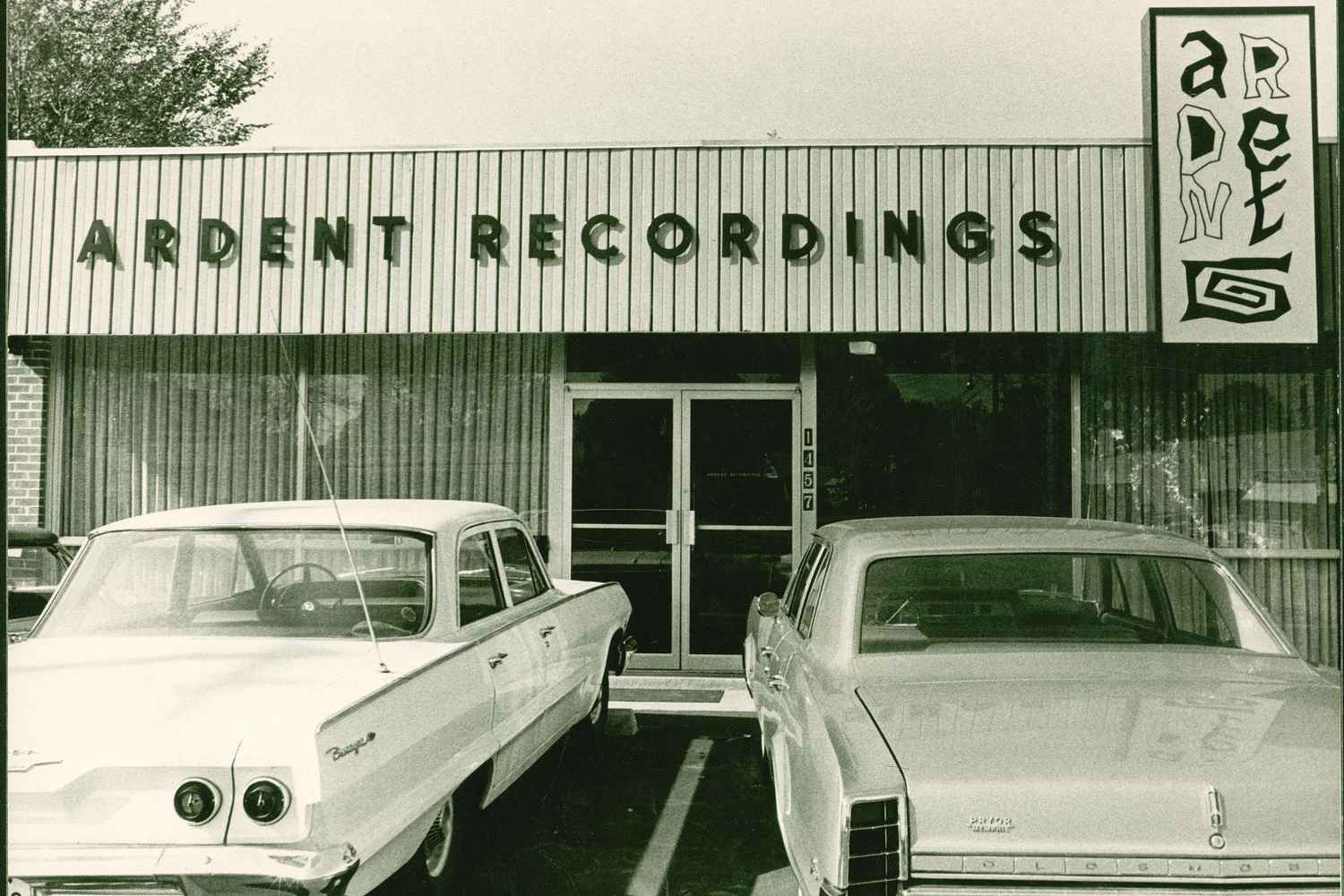
“His parents sold the house and they all figured ‘Well, you’ve been doing this for six or seven years, you’re pretty serious about it. So they rented a space on National [Street] and configured the space to be a studio.”
“It was there from ‘66 until November of ‘71. So, and it probably had the plate reverbs over on National too. John’s parents had some means, and John was brilliant. Interesting enough, he started Ardent with John King and Fred Smith. Fred Smith’s the guy who started Federal Express (FedEx), very clever guys.
John King came along who was the Ardent PR guy, with a record label in the early 70s… and got us [Big Star] to play, kinda re-sparked what we were doing.”
I comment that the history of Ardent is a very important story.
“Apparently, ‘cause I talk about it a lot,” starts Jody. “I just think it’s a cool story that he started so early. And so, his [John Fry’s] parents had the means and he could afford things like Fairchild compressors and Neumann mics and he could build some stuff himself, he was a smart guy and really well read in audio engineering technology.”
I ask now about Jody’s own history, and whether the residual influence of Big Star sprinkled across the last few decades of music adds pressure to how he writes music.
“No.”
He smiles here. “I’m grateful, believe me. ‘Cause it’s a common denominator that puts me on stage with Luther Ross in Those Pretty Wrongs, it’s this common denominator [that] puts me on stage…”
Jody trails off, and I acknowledge that it’s a big question.
“I think the mark I’ve always aimed for, is the mark that makes me feel good about it. Once I feel good about it, I’m satisfied.”
“But it has to hit that mark or it doesn’t go anywhere. I’m not smart enough or whatever to figure out what other people’s tastes are. If I’m engaged, then it works.”
I ask what that mark is, if it’s to feel something, or feel like he’s nailing that feeling.
“That’s beautiful. You’ve nailed it. It’s the feeling that’s, uh, I know somewhere somebody said ‘I’d rather be moved than impressed.’ and so that’s the mark, is to be moved.
Interestingly enough, I have to believe what I’m singing. And once it hits that mark, then I’m fine. I’m good.”
We agree on this, acknowledging that being moved by something is impressive, but being impressed doesn’t necessarily move you.
“Exactly, yeah. The big talent you need to have is engaging people. I think that some people – that’s in the forefront of their minds and some people kinda lose track of it. Y’know, it’s about a performance, or a vocal delivery, or a hot lick or whatever. But it’s really all about engaging with someone.”
Speaking to producing and performing on records, we discuss the people skills and audio skills go hand in hand.
“It’s a bit of both. For us [Big Star], our guy was John Fry. And he just made the whole thing sparkle. And the way he mixed stuff and produced it, kinda just enhanced the presentation. They both complimented each other extremely well.
That’s why those Big Star records have stood the test of time, I think.”
We shift to Big Star, discussing how relevant they still sound. I’m not sure whether this is entirely owed to John Fry’s great production and engineering, or Jody’s influence on bands creating music in the modern day. Maybe somewhere in the middle.
“They [the Big Star albums] were definitely from a vibe. John Fry was certainly a Big Star fifth member. The way it hits you sonically, much like Jeff Emerick or George Martin, they were a big part of The Beatles. ‘Cause sonically, the Beatles were an adventure, and then you have the songs and they just complimented each other.”
“If you’re chasing expectations, it doesn’t really wind up somewhere that it’s engaging, but it’s a lot easier to just start from scratch with a mark of just liking what you’re doing.”
I agree, saying it’s the right way to go, and that it seems to be working for Jody.
“So far, so good.” he says with a grin.
Those Pretty Wrongs are on tour throughout August, get tickets here.
